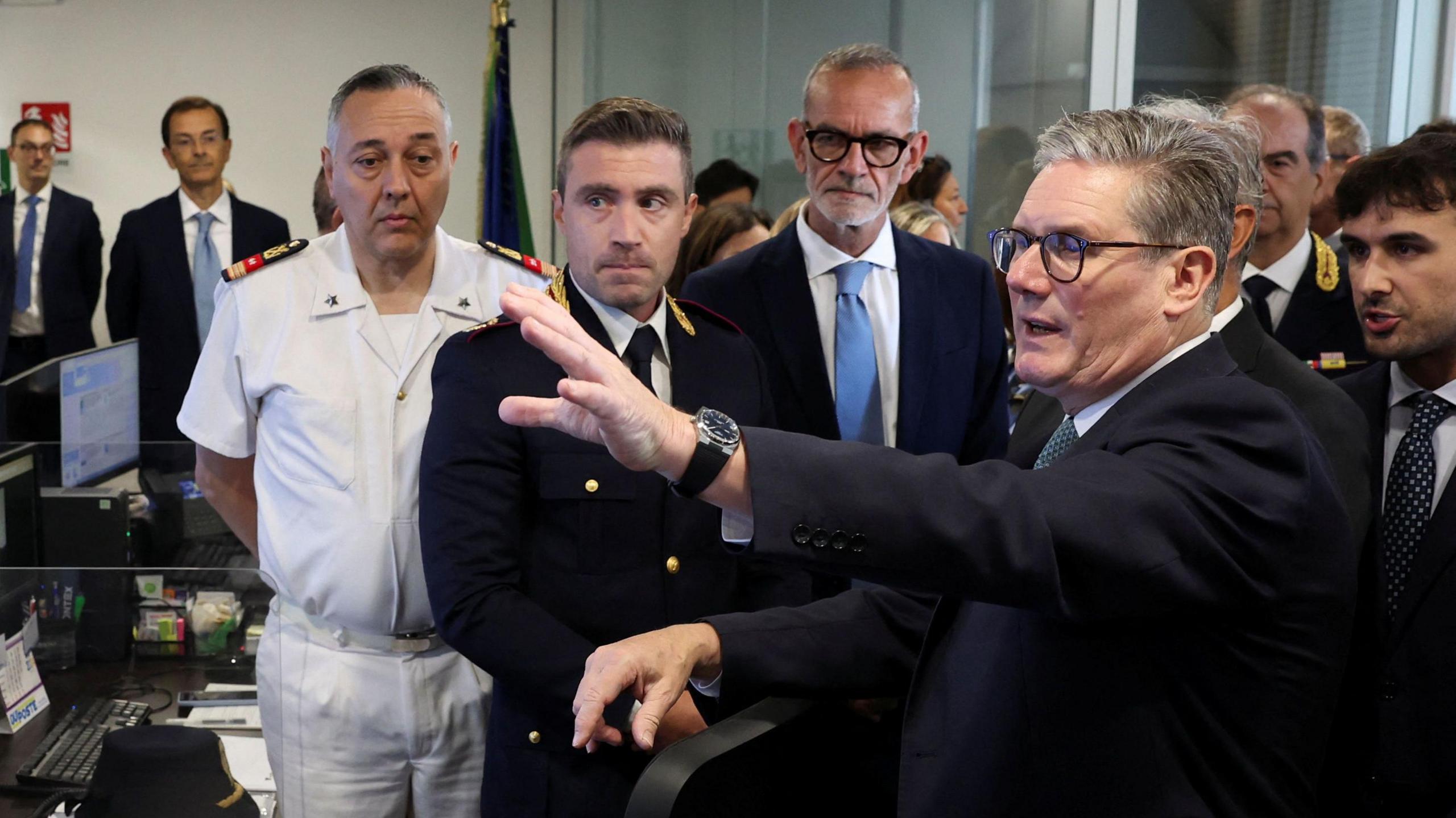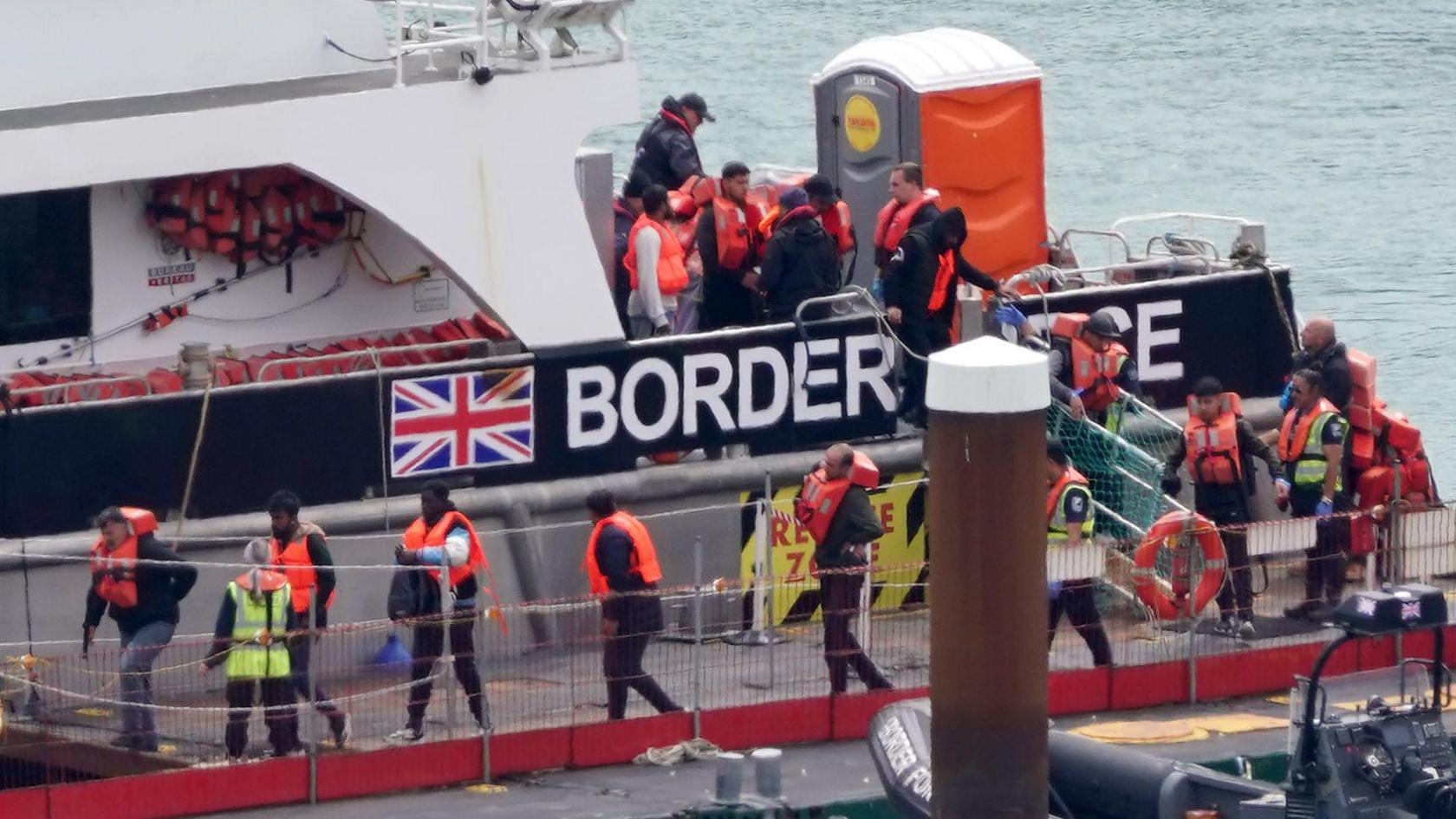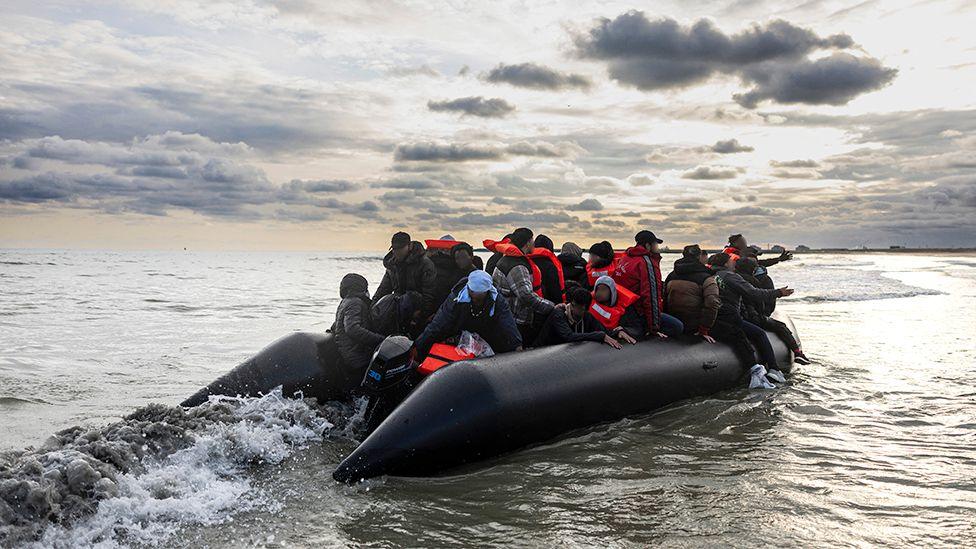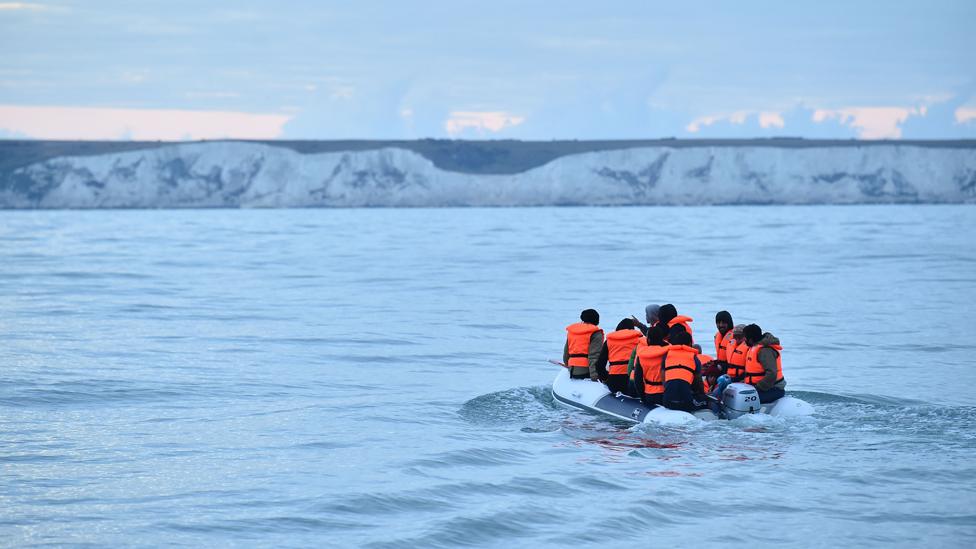Starmer in Italy to discuss migration with PM Meloni

Sir Keir Starmer visited Italy's migration coordination centre ahead of his meeting with Giorgia Meloni
- Published
Prime Minister Sir Keir Starmer has said he is “interested” in learning about Italy’s scheme to send migrants rescued at sea to Albania to process their asylum claims, as he begins his first official visit to Rome.
The British leader is meeting Italian Prime Minister Giorgia Meloni on Monday.
Top of the agenda will be migration and how the UK can learn from Italy - the European Union member receiving the highest number of migrant arrivals, but which has recently seen a dramatic fall.
Sir Keir said he wanted to understand how Italy had achieved that reduction, adding: "I've long believed that prevention and stopping people travelling in the first place is one of the best ways to deal with this particular issue."
Sir Keir and Meloni are prime ministers on opposite political sides. One started off in politics by joining the young socialists and now leads a Labour government in the UK, while the other began with young neo-fascists and now helms a right-wing coalition in Italy. Both, however, are keen to build on a crucial European relationship.
At Monday’s meeting, the pair will discuss what is known as irregular migration, among other issues, as both countries aim to reduce arrivals by sea.
On the continent, Frontex, the EU’s border force, has calculated a 64% drop this year in those making the perilous crossing from north Africa to Italy.
Just over 43,000 have arrived so far this year, according to the United Nations, compared to a total of almost 158,000 in 2023. Some try to continue their route through France and up to Britain.
The UK is struggling to respond to the migrant crisis in the English Channel, with arrivals from France up on last year. Eight people died on Sunday when a boat capsized in the Channel.
Central to the fall in crossings to Italy are financial deals struck with Tunisia and Libya – where most people depart from for Europe.
The EU paid Tunisia €105m (£88m) in 2023 to boost border security and train up its coastguard. Italy supplied the country with patrol vessels and gave its government another €100m to support small companies and invest in education and renewable energy.
Meloni also signed a major gas deal with Libya and Italy is training and equipping the Libyan coastguard.
The agreements echo the EU’s strategy with Turkey at the height of the 2016 migration crisis, when the bloc gave Ankara €6bn to boost border patrols with Greece. It led to a dramatic fall in departures.
But the deals to keep migrants in north Africa carry huge controversy.
Italy prepares to open controversial migrant centre in Albania
- Published1 August 2024
Italian state of emergency to tackle migrant boats
- Published12 April 2023
Human Rights Watch has accused Italy and the EU of being “complicit” in crimes carried out against migrants in Libya, reporting cases of “murder, enforced disappearance, torture, enslavement, sexual violence, rape, and other inhumane acts” in the north African country.
The EU’s outgoing foreign policy chief Josep Borrell reportedly wrote of the “incomprehension” of some member states over the deal struck by the European Commission President Ursula von der Leyen with Tunisia, due to a sharp deterioration in its democracy.
Tunisia's President Kais Saied has suspended parliament, while opposition MPs, journalists and lawyers have been arrested.
Some members of the European Parliament have complained of “bankrolling dictators across the region".
In Rome, Sir Keir is likely to hear about the range of measures Italy is taking to counter irregular migration, including reception centres it is building in neighbouring Albania, which are due to open later this year after some delays.
The two centres, funded and managed by Italy, could hold up to 36,000 migrants per year. While there, they will be able to apply for asylum in Italy. If refused, they will face deportation.
While the Albanian government has suggested that such a deal is only with Italy, its closest ally in Europe, Sir Keir has shown interest in the outsourcing model, holding talks with his Italian and Albanian counterparts at the European Political Community summit at Blenheim Palace in July.
Foreign Secretary David Lammy told the BBC on Sunday that the prime minister would discuss with Meloni the work Italy had done on migration, "particularly with Albania".
Lammy said that because Italy’s arrival numbers had reduced, "we are interested" in discussing the country’s schemes, not just with Albania, but with Syria and Libya as well.
Alberto-Horst Neidhardt, a migration specialist at the European Policy Centre thinktank, said that “Britain is exposed to the consequences of decisions in the EU, without having a say – and that weakens its capacity to manage migration flows”.
“It was quite difficult for the previous British government to seek effective solutions with France – and so it makes sense to turn to Italy for this new prime minister.”
Meloni was probably Rishi Sunak’s closest ally in Europe. Both right-wingers, their political chemistry was clear, with Sunak calling her “a lovely person” after their last meeting at the G7 summit.
His successor may not be such a natural political fit for Meloni – but she is arguably the EU’s strongest right-wing leader and Starmer knows that to solve the migration challenge, all roads lead to Rome.

Sign up for our Politics Essential newsletter to read top political analysis, gain insight from across the UK and stay up to speed with the big moments. It’ll be delivered straight to your inbox every weekday.
- Published10 July 2024

- Published4 September 2024

